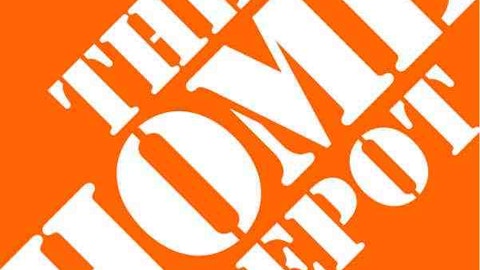At The Motley Fool, we poke plenty of fun at Wall Street analysts and their endless cycle of upgrades, downgrades, and “initiating coverage at neutral.” Today, we’ll show you whether those bigwigs actually know what they’re talking about. To help, we’ve enlisted Motley Fool CAPS to track the long-term performance of Wall Street’s best and worst.
Goldman Sachs thinks Best Buy really is… a great buy right now
As a hyperinflated stock market treads water today, shareholders in one retailer, at least, are still flying high. Why? Perhaps inspired by the furor surrounding Dell Inc. (NASDAQ:DELL)‘s going-private drama, investment banker Goldman Sachs announced it was reinitiating coverage of Best Buy Co., Inc. (NYSE:BBY) as well.

According to the analyst, Best Buy’s in the midst of a move to cut costs and improve profitability. Although “Q1 results are unlikely to inspire,” Goldman thinks that ” over time costs are likely to track below Street consensus.” As a result, earnings should be above Street consensus. Goldman also points out that the stock’s valuation is “at the low end” of the retail stocks it covers, suggesting there’s at least an “opportunity for outperformance.”
Is that correct?
Running the numbers
It depends on how you look at the numbers. On the one hand, Best Buy Co., Inc. (NYSE:BBY) currently sports a negative P/E ratio, based on trailing-12-month results. On the other hand, the stock costs only 9.1 times the earnings it’s expected to produce next fiscal year. Meanwhile, on the third hand (the third hand?), the company’s already generating substantial free cash flow from its business — $680 million annually at last count.
Now compare these numbers to Best Buy’s fiercest competitors. Amazon.com, Inc. (NASDAQ:AMZN), which heads the list, is also currently unprofitable. What’s more, its forward P/E ratio of 75 is vastly more expensive than Best Buy’s single-digit forward P/E.
Costco Wholesale Corporation (NASDAQ:COST), too, costs more than Best Buy on a forward earnings basis (20x earnings), albeit it’s already profitable today and probably deserves points for consistency. Wal-Mart Stores, Inc. (NYSE:WMT) is even cheaper, costing less than 15 times today’s profits and about 12.6 times next year’s. So to an extent, yes , Goldman’s right that Best Buy’s valuation looks low. Then again, this low valuation may be deserved.
Considering the options
After all, when shopping for electronics goods — Best Buy’s forte — what are consumers’ options, really? As it stands, electronics retailing basically breaks down among four choices, depending on what you’re looking for:
If you want in-person service and installation, you go to Best Buy and its Geek Squad.
If you just want a cheap price, you go to Walmart.
If you want a cheap price and don’t want to pay sales tax, you log on to Amazon.com. (At least, you do unless you live in Arizona, California, Kansas, Kentucky, New York, North Dakota, Pennsylvania, Texas, or Washington (and the list is only getting longer).





